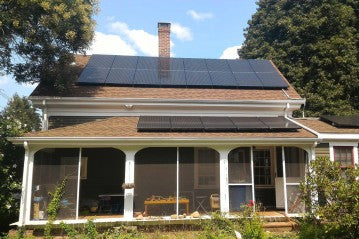
As the world embraces renewable energy sources, solar power has emerged as a popular choice for environmentally conscious individuals. Solar panels capture the sun's energy and convert it into electricity, but to ensure efficient and safe charging of batteries, a vital component called a solar charge controller is required. This blog post explores the question: Can a solar charge controller work without a battery? Let's dive in and shed some light on this intriguing topic.
1. Understanding the Role of a Solar Charge Controller
Before delving into whether a solar charge controller can operate without a battery, let's first comprehend its primary role in a solar power system. A solar charge controller acts as a regulator, controlling the flow of electricity from the solar panels to the battery bank.
The primary functions of a solar charge controller include:
1.1. Overcharge Protection
Solar panels generate electricity when exposed to sunlight. Without a charge controller, the voltage from the solar panels can rise to a level that can damage the batteries. The solar charge controller prevents overcharging by limiting the voltage applied to the battery.
1.2. Battery Under-Voltage Protection
On the flip side, solar charge controllers also safeguard the battery from becoming completely discharged. When the battery voltage drops below a certain threshold, the controller disconnects the battery from the load to prevent damage. This feature extends the battery's lifespan and ensures it remains within safe operating limits.
1.3. Optimal Charging Efficiency
Solar charge controllers incorporate Maximum Power Point Tracking (MPPT) or Pulse Width Modulation (PWM) techniques to ensure maximum energy conversion from the solar panels. MPPT controllers dynamically adjust the voltage to match the optimal power output of the panels, resulting in more efficient charging.
2. Can a Solar Charge Controller Function Without a Battery?
The short answer is: Yes, a solar charge controller can technically work without a battery, but its usefulness is significantly diminished. While it is technically possible to connect solar panels directly to loads without a battery, it poses several limitations and drawbacks. Let's explore them in detail.
2.1. Load Dependence
When a solar charge controller is utilized without a battery, it can only power loads during daylight hours when the sun is shining. As soon as the sun sets or is blocked by clouds, the power supply to the loads is interrupted. Therefore, the system becomes entirely dependent on solar availability, rendering it unsuitable for powering loads during nighttime or cloudy periods.
2.2. Inconsistent Voltage
A solar charge controller is designed to regulate and stabilize the voltage output from solar panels. However, without a battery, the controller lacks a buffer to store excess energy and maintain a stable voltage supply. As a result, voltage fluctuations can occur, which might not be suitable for sensitive electronic devices or appliances.
2.3. Inefficient Energy Utilization
One of the primary advantages of using a solar charge controller with a battery is the ability to store excess energy generated during sunny periods for later use. This stored energy ensures a consistent power supply, even when solar production is low. Without a battery, any surplus energy goes unused, resulting in inefficient utilization of the available solar power.
3. Practical Applications of a Solar Charge Controller with a Battery
While it is technically possible to operate a solar charge controller without a battery, it is important to understand that its intended purpose is to optimize energy storage and utilization. Therefore, utilizing a solar charge controller in conjunction with a battery opens up a wide array of practical applications. Let's explore some of them:
3.1. Off-Grid Systems
For individuals or locations not connected to the utility grid, off-grid solar systems are an excellent solution. These systems use solar panels to generate electricity, which is stored in a battery bank for use during non-sunny periods. A solar charge controller ensures efficient charging and discharging of the batteries, providing a reliable power supply.
3.2. Hybrid Systems
Hybrid solar systems combine solar power with other sources of energy, such as a diesel generator or wind turbines. In such systems, a solar charge controller plays a crucial role in managing the energy flow between the different sources and the battery bank. It ensures seamless transitions, optimizes energy usage, and prevents overcharging or undercharging of the batteries.
3.3. Backup Power Systems
Solar power can also be utilized as a backup power source for homes or businesses. During grid outages, a solar charge controller connected to a battery bank ensures continuous power supply to essential loads. The batteries store excess solar energy during regular operation, ensuring a reliable backup power source when needed.
Conclusion
In conclusion, while it is technically possible for a solar charge controller to operate without a battery, its usefulness and efficiency are significantly reduced. The solar charge controller's primary purpose is to regulate and optimize the charging and discharging of batteries in solar power systems. By incorporating a battery, users can enjoy a reliable power supply during periods of low solar production and store excess energy for later use. Whether it's for off-grid systems, hybrid setups, or backup power solutions, a solar charge controller combined with a battery unlocks the full potential of solar energy, providing sustainable and reliable electricity for various applications.
So, if you're considering harnessing the power of the sun for your energy needs, don't forget to include a solar charge controller and a battery in your setup. These essential components will ensure optimal energy utilization, longevity of your batteries, and a reliable power supply, empowering you to make a greener and more sustainable choice for the future.


0 Kommentare